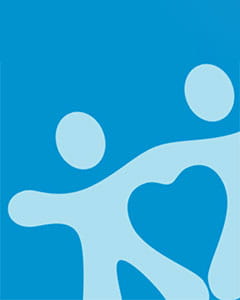For Down Syndrome Awareness Month, help us beat the myths and prejudice
In honor of Down Syndrome Awareness Month, please welcome our guest contributor, Eliana Tardio. Eliana is the mother of two children with Down syndrome. Her advocacy work has been nationally and internationally highlighted. She works as a Family Specialist for the Early Steps program of the State of Florida, and she spreads the word about the benefits of inclusion in several well-known web platforms in both English and Spanish. This article is part of her October Awareness carnival for Down syndrome featured on her personal blog www.elianatardio.com.
Down syndrome is a chromosomal condition caused by an extra copy of chromosome 21. The Center for Disease Control and Prevention estimates that one in every 691 newborns in the United States is born with Down syndrome. Although it was initially diagnosed by John Lang Down in 1866, it wasn’t until 1959 that the origin of the syndrome was clinically discovered by Jerome Lejeune.
But, even though we’ve known the medical causes of Down syndrome for more than 100 years, we still haven’t learned enough about the human beings living with it. We have so much more to discover about the possibilities these individuals have to offer, and how we can support and uphold their dignity. After all, change comes slowly, and unfortunately, myths and stigmas are still prevalent in most peoples’ minds when they think about those with Down syndrome.
People with Down syndrome used to be institutionalized or hidden away, as they were considered a genetic mistake. But eventually the power of love of their families has demonstrated that providing a natural environment for development, free of prejudice, is the best way to empower their unique abilities.
We, as parents or siblings, are always promoting our family members with Down syndrome as typical individuals. We have faith in them and we know they can live full lives with the support and acceptance of their communities. Even so, this is still a new idea for many who haven’t interacted with or experienced life with an individual with Down syndrome. They are still prisoners of their own prejudice.
This is the main reason why every October, as parents and relatives, we devote ourselves to raising awareness about Down syndrome.
Things that everybody should know about people with Down syndrome and their loved ones:
- They grow and develop just like everyone else, but outside of developmental charts and timelines. They grow at their own pace, but they surely achieve their personal goals.
- Being “normal” doesn’t necessarily mean following the pack. Being normal is living free of prejudice, to be able to open your mind to accept that life is perfect in all its expressions. They are not broken. They are more like you than they are different, and they have unique ways to live and love.
- As parents we don’t expect people to treat our children differently, but to accept them and make adjustments that will provide them the opportunity to become useful individuals in their communities.
- They don’t suffer. They are not sick or contagious. They have a unique way of living and adapting to a world where the majority of people have one less chromosome than they do.
- They have individual abilities and limitations, just like everyone else.
- They have unique personalities. The extra chromosome doesn’t dictate how they behave.
- They do their best, every day, to complete tasks that may look simple to you. Respect their effort and don’t humiliate them. Don’t use the words “mongoloid” or “retarded” to label them.
- Most of them graduate from school and follow technical or professional careers. They learn and succeed when opportunities are given to them.
We are looking for parents who relate to the love we feel for our children, not because they have special needs, but because they are our children. We don’t love them more because they have an extra chromosome. We love them because of who they are: our kids. Parents who understand and appreciate that can educate their children about similarities, and help them understand that in a more perfect world, there is a place for everyone.
So this October, we invite you to cross the mental line of prejudice that so many of us have inherited when it comes to Down syndrome. Embrace the adventure of diversity, and the universality of love. This is a great time to start!







